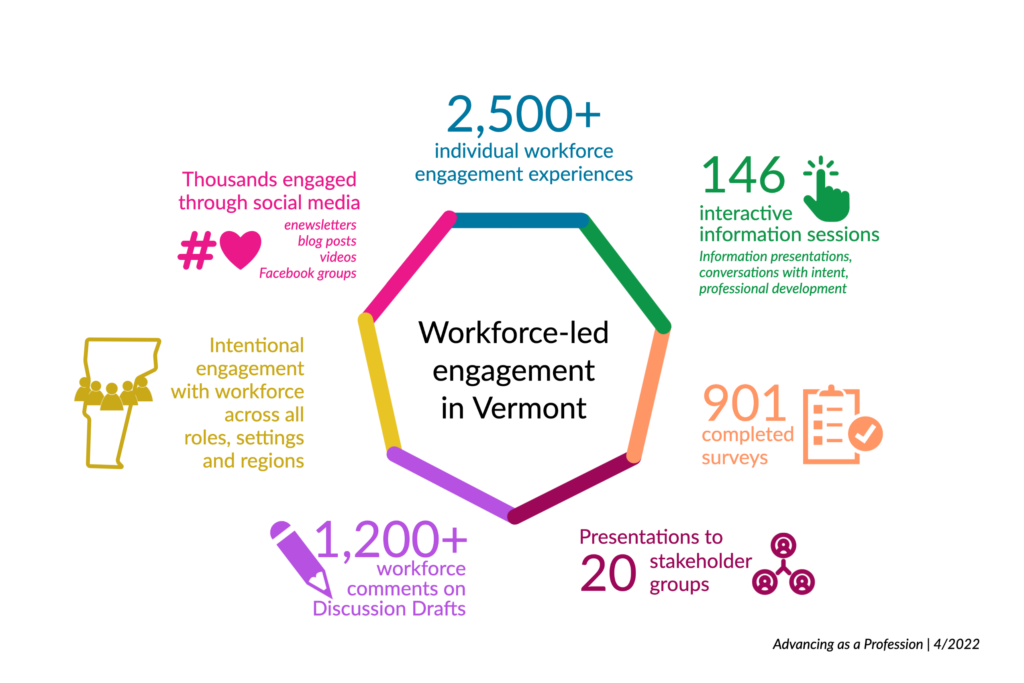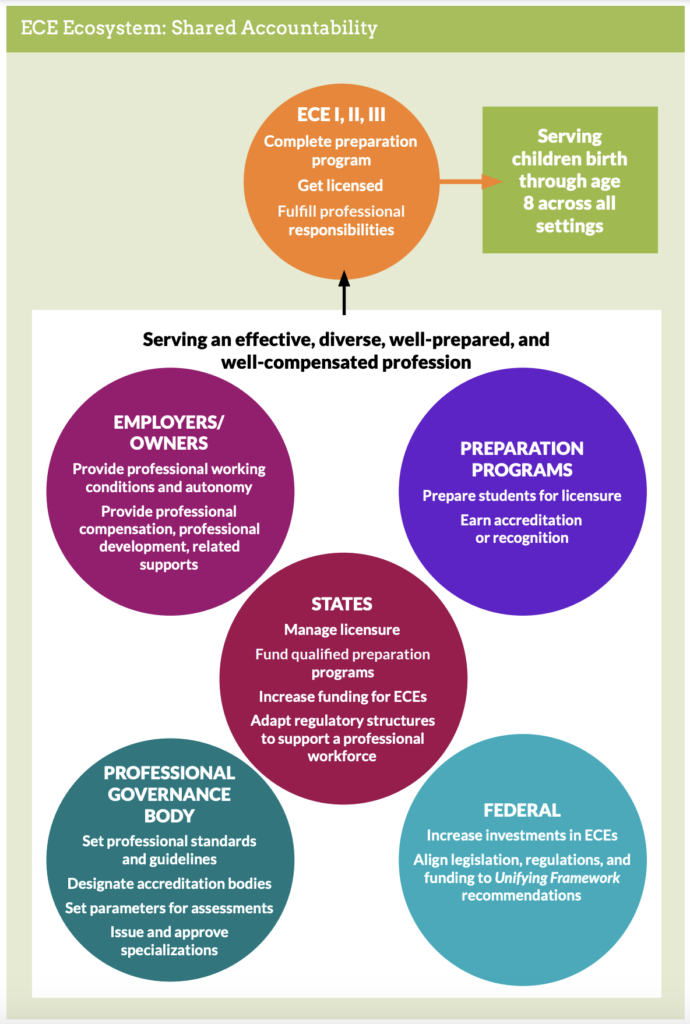Our Progress
We are building the early childhood education profession of the future.
And for today's early childhood educators, we are building a supportive bridge to the profession of the future.
Our Process
When Vermont’s early childhood educators were first asked if we had the will to advance as a profession, we said yes – with some recommendations. It was critically important to Vermont early childhood educators that we lead this project. We said: “Nothing about us without us.”
Since then, we have shaped every piece of our shared vision. A Task Force of early childhood educators representing all settings and regions makes recommendations to the workforce and incorporates feedback into our consensus documents.

The recommendations in those consensus documents go to Design Teams that include partners in key roles throughout the ECE ecosystem as well as educators. These teams are tasked with designing implementation recommendations for their part of the new ECE profession.
At the same time, advocacy partners, policy makers, and other stakeholders are kept informed about our work and invited to engage.
Finally, project leaders are in close communication with NAEYC and other states active in this work, with the ultimate goal of implementing the recommendations of The Unifying Framework to create a national early childhood education profession.
A Bridge For Today's Early Childhood Educators
Will I qualify as an ECE I, ECE II, or ECE III?
Vermont needs supportive pathways for current early childhood educators to qualify for future professional designations. Together, these paths and supports make up the “bridge” to the new profession.
One path over the bridge is “establishing equivalence.” An academic credential is evidence of knowledge and skills. But it’s not the only evidence. We develop knowledge and skills through ongoing professional development and experience. And there are different ways to demonstrate those competencies.
The Task Force is working on a process to help experienced educators, who may not have the required credentials for ECE II, qualify for that designation. The purpose is to honor experience-based knowledge and skills. And that is establishing equivalence.
As we look at our bridge, many of us will have choices to make. We will need individualized supports, an extended phase-in period, flexible ways to demonstrate competencies, and in some cases, waivers. Because every member of the current workforce can have a place in the future ECE profession.
It will take some work to cross the bridge. And it will be worth it.

A Supportive System For Tomorrow's Early Childhood Educators
The Unifying Framework envisions “the profession itself will take the lead in defining who early childhood educators are, what we do, what we will be held accountable for, and what supports we need to ensure our success.”
Partners in this complex and interdependent ecosystem include:
- Early childhood educators
- Program owners/employers across all settings
- Preparation programs / higher education
- A professional governance body
- The State of Vermont
- The Federal Government
Nationally, NAEYC convened the Commission for Excellence in Early Childhood Education as a national model professional governance body, and is developing model legislation to support establishing an ECE profession in states and nationally.
In Vermont, we are investing in the partnerships necessary for this system to work. From building systemic alignment in higher ed with NAEYC’s Professional Standards and Competencies, to providing regular testimony to the legislature and other bodies that influence state policy, to our core work engaging early childhood educators and programs in the process, our implementation Design Teams and stakeholders must be mutually engaged in reaching our shared vision.

